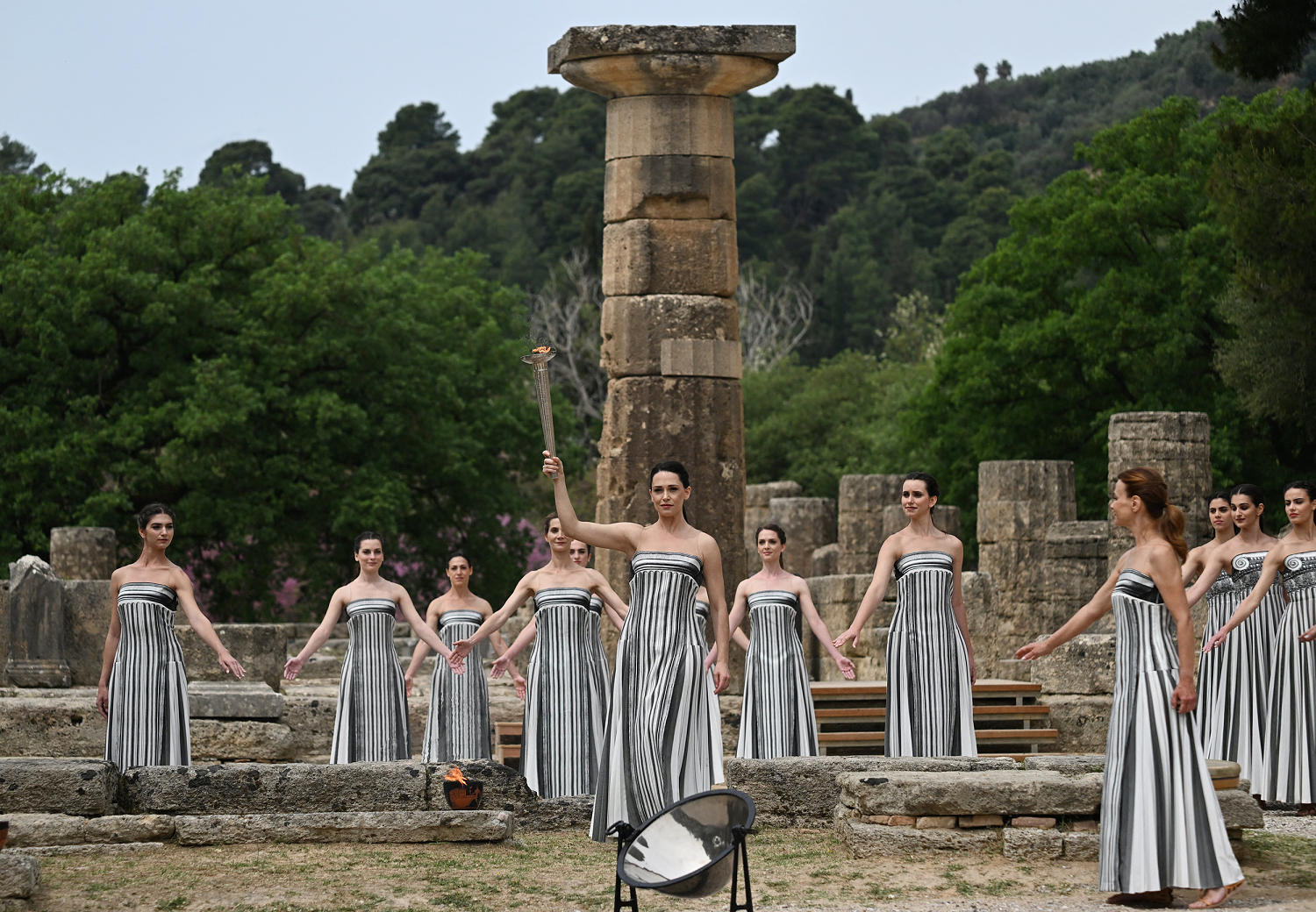Paris Olympics flame lit in ancient-inspired ceremony, starting torch relay from

The priestess keeper of the fire, known as the Hestiada, then takes the flame in an urn to the ancient stadium at Olympia, where it is given to the first torchbearer along with an olive branch, symbolizing peace.
That first torchbearer will be Olympic rowing champion Stefanos Ntouskos, who will receive the flame at the edge of the ancient Olympic stadium for the start of a relay through Greece.
It will then be handed over to Paris Games organizers in Athens later this month before departing for France on board a three-masted ship, the “Belem.”
The Olympic flame will arrive in the Mediterranean port city Marseille on May 8, with up to 150,000 people expected to attend a ceremony before the French leg of the relay begins.
Marseille, founded by the Greek settlers of Phocaea around 600 BC, will host the sailing competitions.
The French torch relay will last 68 days and will culminate with the lighting of the Olympic flame at the Games’ opening ceremony on July 26.
The origin of the ancient games dates back to 776 BC and were hugely popular, carrying on until they were banned in 393 AD by Theodosius I, a Christian emperor, who considered the whole business part of a pagan cult.
Much of the modern pageantry didn’t happen then — there was no torch relay, for example — while back then Olympic competitors had to perform naked. Wrestling is still an Olympic sport, but competitors are no longer covered in olive oil.
Nor does warfare get in the way, as it did in 480 BC when a Persian army invaded, but Greek city states had a hard time recruiting soldiers because many were more keen on attending or taking part in the games.
Back then women couldn’t take part, nor even attend the tournament. One enterprising Spartan princess, Kyniska, exploited a loophole by claiming a victory wreathe in 396 and 392 BC because she was the owner of a winning chariot.
These days, too many false starts can get a runner disqualified — in ancient Greece you could face corporal punishment.
Read More: Paris Olympics flame lit in ancient-inspired ceremony, starting torch relay from

